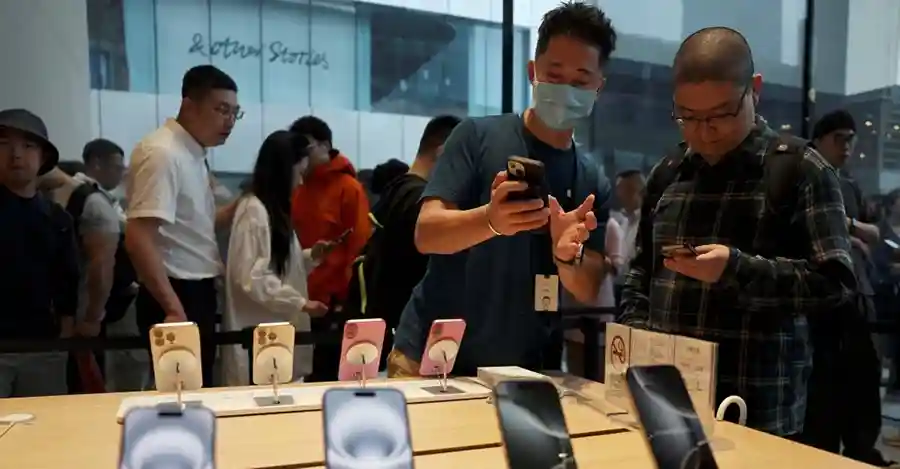A quiet revolution is transforming how young people navigate romance, heartbreak, and intimacy—nearly half of Generation Z uses artificial intelligence for dating advice, more than any other generation, according to a recent nationwide survey by Match. From crafting perfect breakup texts to seeking guidance on sexual questions too embarrassing to ask friends, Gen Z AI dating advice has become the new normal for millions of young adults born between 1997 and 2012. As ChatGPT relationship advice queries surge and AI dating assistants proliferate, this digital-native generation is rewriting the rules of modern romance—but experts warn that privacy risks and unhealthy relationship patterns may be brewing beneath the surface of this technological shift.
The Numbers Behind Gen Z’s AI Dating Revolution
Statistical Reality of AI Relationship Counseling
Generation Z (aged 18-26) are the most likely generation to embrace artificial intelligence in their love lives, with 15 percent using AI to plan dates and 12 percent turning to it for relationship advice. This represents a dramatic generational divide, with Millennials trailing behind at just 9 percent usage.
- 50% of Gen Z Americans have used AI tools like ChatGPT for dating advice
- 41% of young adults have used AI to help end relationships
- 15% use AI to plan romantic dates
- 12% rely on AI for ongoing relationship counseling
- 25% of young adults believe AI could potentially replace real-life romantic relationships
The trend extends beyond casual advice-seeking. 41% of young adults have used AI to help end a relationship, with women slightly more likely than men to let the bots do the dirty work, revealing how deeply AI has penetrated the most emotionally charged moments of modern dating.
Surprising Ways Gen Z Uses AI for Dating and Relationships
1. Breakup Text Generation
Young adults increasingly outsource emotionally difficult conversations to AI. Instead of crafting their own words, they input their situation into ChatGPT and receive polished, diplomatic breakup messages that minimize confrontation while ending relationships.
Why it’s popular:
- Reduces emotional stress during difficult conversations
- Provides diplomatic language for sensitive situations
- Offers immediate solutions without friend judgment
2. Profile Optimization and Pickup Lines
Gen Z turns to AI for help creating attractive dating profiles, generating witty bios, and crafting attention-grabbing opening messages. AI analyzes what works statistically and produces content designed to maximize matches and responses.
3. Relationship Problem-Solving
Rachel from Sheffield (name changed for privacy) represents thousands seeking relationship guidance from AI. “I didn’t want to talk to friends, so I consulted AI for advice. It helped me become more confident,” she explained. This pattern reflects young adults’ preference for judgment-free, immediate counsel over traditional friend or family discussions.
4. Sexual Health and Intimacy Questions
Ish Lee, creator of the AI service “Mei,” reports substantial demand for intimate advice: “Many people consult AI about sexual questions that they can’t easily discuss with friends or therapists.” The anonymity and non-judgmental nature of AI makes it an appealing resource for sensitive topics.
5. Date Planning and Activity Recommendations
15% of Gen Z’s have already been using AI to plan dates, asking for restaurant recommendations, activity ideas, and creative date concepts tailored to specific interests, budgets, and locations.
6. Message Tone Analysis and Rewriting
AI helps decode ambiguous text messages, analyze potential partner communication patterns, and rewrite emotional responses to sound calmer, more confident, or more strategic—essentially serving as a real-time communication coach.
7. Deciding Whether to Continue Relationships
Some young adults input relationship details into AI and ask for objective analysis about whether they should pursue second dates, continue seeing someone, or recognize red flags they might be overlooking emotionally.
The Psychological Impact: Benefits and Dangers
Documented Benefits of AI Dating Advice
Many users report tangible benefits, including improved communication skills, emotional regulation and even greater productivity in both work and relationships. For some, AI companions have served as practice grounds for empathy, boundaries and self-reflection.
Dr. Lalita Suglani, a psychologist and relationship expert, acknowledges AI’s positive capabilities: “AI helps build confidence, rewrite emotional messages, and reduce stress.” For socially anxious individuals or those lacking relationship role models, AI can provide structured guidance and perspective.
Proven advantages:
- Immediate, 24/7 availability without burdening friends
- Non-judgmental space for sensitive questions
- Articulates feelings users struggle to express
- Provides structured frameworks for thinking through problems
- Reduces impulsive emotional reactions
Critical Concerns and Psychological Risks
Dr. Suglani warns: “AI can sometimes validate unhealthy behavior, which can negatively impact relationships.” This represents perhaps the greatest danger—AI lacks genuine understanding of human complexity, context, and long-term relationship dynamics.
Major psychological risks:
- Validation of toxic patterns: AI might frame manipulative behavior as “strategy” or rationalize controlling actions
- Reduced emotional resilience: Outsourcing difficult conversations prevents developing crucial communication skills
- Superficial problem-solving: AI provides quick fixes rather than addressing deeper relationship issues
- Decreased human connection: Over-reliance on AI advice reduces meaningful conversations with trusted humans
- Delayed professional help: Using AI instead of seeking therapy for serious relationship problems
- Unrealistic expectations: AI-optimized communication may create inauthentic relationship dynamics
London resident Corinne (name changed) captures the ambivalence: “AI provides mental peace when friends aren’t available. But I keep it at a distance.”
Privacy Nightmare: The Hidden Cost of AI Dating Advice
Data Security Risks in AI Relationship Apps
While Gen Z freely shares intimate relationship details with AI, experts warn that privacy protections remain dangerously inadequate. Security issues and data privacy are common concerns when it comes to AI, including romance scams and the sharing or selling of personal information.
Critical privacy concerns:
- Sensitive data storage: Intimate relationship details, sexual questions, and personal conflicts stored on corporate servers
- Third-party data sharing: Many AI apps sell user data to advertisers and data brokers
- Data breach vulnerability: Exposed databases could reveal deeply personal information
- Lack of encryption: Not all AI services adequately protect conversation data
- Perpetual storage: Conversations may remain archived indefinitely without user control
Dating apps have particularly poor privacy records. Over 323 million people worldwide use dating platforms, yet security remains minimal. Several AI chatbot apps are leaking user data because security is treated as an afterthought rather than priority.
Legal and Ethical Gray Areas
Equally scary is the prospect of queer folks being criminalized for using these dating tools in countries where being gay is illegal. LGBTQ+ individuals face particular vulnerability when sensitive relationship questions are stored by companies potentially subject to government data requests.
Regulatory gaps:
- No specific laws governing AI relationship advice
- Limited accountability for inaccurate or harmful guidance
- Unclear liability when AI advice causes relationship damage
- Minimal transparency about data usage and retention
Expert Perspectives: Should You Trust AI With Your Love Life?
The Case for Cautious Use
Relationship experts don’t universally condemn AI dating advice but emphasize careful, limited application. AI works best for:
- Brainstorming conversation starters or date ideas
- Articulating feelings you struggle to express
- Getting alternative perspectives on conflicts
- Practicing difficult conversations before real ones
- Understanding general relationship dynamics
When AI Becomes Harmful
Experts agree AI should NEVER replace:
- Professional therapy for serious relationship issues
- Honest conversations with trusted friends and family
- Direct communication with romantic partners
- Personal judgment about values and boundaries
- Intuition about unhealthy or dangerous situations
Dr. Suglani emphasizes: “Always prioritize human contact and personal experience over AI recommendations.”
The Future of AI in Romance: 4 in 5 Gen Z Would Marry AI
Perhaps most startling, four in five Gen Zers say they would marry an artificial intelligence chatbot, revealing how normalized AI relationships have become for digital natives. This statistic raises profound questions about human connection, loneliness, and technological dependency.
What This Means for Real Relationships
A much higher share (25%) of young adults believe that AI has the potential to replace real-life romantic relationships, signaling a concerning disconnect between virtual assistance and authentic human intimacy.
Potential long-term consequences:
- Decreased tolerance for messy, imperfect human relationships
- Preference for controllable AI interactions over unpredictable humans
- Reduced development of conflict resolution skills
- Normalized emotional distance in partnerships
- Increased loneliness despite constant AI “companionship”
How to Use AI Dating Advice Responsibly
Best Practices for Gen Z
If you choose to use AI for relationship guidance, follow these protective guidelines:
- Never share identifying information: Keep all details anonymous and generic
- Use for ideation, not decision-making: Let AI spark ideas, but make your own choices
- Verify advice with humans: Run AI suggestions past trusted friends or therapists
- Recognize AI limitations: Remember it lacks genuine emotional intelligence
- Prioritize privacy: Use reputable services with clear privacy policies
- Set boundaries: Don’t become dependent on AI for all relationship questions
- Seek professional help for serious issues: Therapy, not ChatGPT, for trauma or mental health
Red Flags That You’re Over-Relying on AI
Warning signs you need to pull back:
- Consulting AI before making any relationship decision
- Preferring AI conversations to human friendships
- Feeling unable to write messages without AI assistance
- Avoiding direct communication with your partner
- Using AI to validate behaviors you suspect are wrong
- Sharing extremely personal details without privacy concerns
Conclusion: The Double-Edged Sword of Digital Dating Counselors
Gen Z AI dating advice represents a fascinating intersection of technology and human intimacy, offering immediate support while raising profound questions about privacy, authenticity, and emotional development. While AI tools can provide helpful perspective and reduce anxiety around dating challenges, they cannot replace genuine human wisdom, professional counseling, or the messy, beautiful complexity of authentic relationships.
As this trend accelerates, young adults must carefully balance AI’s convenience against its limitations and risks. The technology works best as an occasional brainstorming tool, not a primary relationship counselor. Real love, after all, requires precisely the vulnerability, imperfection, and human messiness that AI cannot truly understand or replace.
The question isn’t whether AI will continue transforming romance—it will. The question is whether Gen Z can harness this technology wisely while preserving the irreplaceable value of genuine human connection.
External Resources:



















Comments